Welcome!
The New England States Government Finance Officers Association invites government public sector members and private sector associate members to the virtual 2021 Fall Conference! This event will be held September 15, 23, 30, and October 8, 2021, via Zoom. Please review the details below and in the tabs above for more information. Contact us at 413-577-8102 or registration@umass.edu if you have any questions or need any assistance completing your registration. We hope you'll join us!
Registration
Registration Rates
Registration includes access to all sessions on September 15, 23, 30, and October 8, and an expected total of 8 CPE hours. Register by September 2, 2021, to receive the below registration rates (after this date, registration rates increase by $40.00).
- Government Public Sector Members: $100.00
- Private Sector Associate Members: $150.00
How to Register
To register, click Register Now above! You will then be prompted to login to Iris Registration, the secure online system being used to manage registration for this event. Click "Don't have an account? Sign Up" to create an account using your email address and a password of your choice. If you registered for the Spring Seminar (or another event with us), you can sign in using your existing Iris Registration account. Once you login you will be brought through the the online registration form and payment gateway. If you need any assistance completing your registration, please email us at registration@umass.edu.
Registering will sign you up for the full Fall Conference, including both sessions on each of the four meeting dates, and you will receive the necessary Zoom links for the sessions prior to the conference.
Registration is accepted on an individual basis. If you need to register multiple attendees, click Register Now, sign in, and complete a registration for the first attendee (proceeding through the payment selection page). Once that registration is completed, click Home in the top toolbar to be brought back to the registration summary screen. Next, click Create Additional Registrations. If you have a large group you would like to register, please email us at registration@umass.edu for assistance.
Payment Options
Payment is accepted during registration via our online payment gateway by Visa, Mastercard, American Express, or Discover credit or debit card. If preferred, you may select to mail in a check, but the deadline to register and select "Check" as your payment method is September 2, 2021: after this date, payment is required in full by card to complete your registration. If you select to pay by check, please note payment must be received prior to the start of the conference in order to receive the session links. If you wish to discuss alternate payment options or if you need an invoice to facilitate payment, please contact us at registration@umass.edu to further discuss your needs.
For additional NESGFOA information please click here. To download the program agenda, click here.
For registration assistance, please contact the UMass Conference Services Registration Office at 413-577-8102 or registration@umass.edu.
Click here to download the conference schedule!
Conference Schedule
Wednesday, September 15
9:30 a.m.: Economic Update
Jim Glassman, Chief Economist, JP Morgan
10:30 a.m.: Trust: The Finance Officer's Most Valuable Asset
Trust is essential for the finance officer to be effective in their job. This section will discuss how trust is gained and lost with the
colleagues inside of local government and with the public.
Chris Morrill, Executive Director, GFOA
Shayne Kavanaugh, Senior Manager, GFOA
Thursday, September 23
9:30 a.m.: ARPA Update and Budgeting for Impact
Thousands of local governments are trying to figure out how to maximize the impact of ARPA dollars and meet daunting compliance
and reporting requirements. Andrew Kleine, author of City on the Line: How Baltimore Transformed Its Budget to Beat the Great
Recession and Deliver Outcomes, will talk about how some local governments are taking on this challenge, how to avoid
pitfalls, and how to invest for long-term community impact and fiscal health.
Andrew Kleine, Senior Director - Government & Public Sector, EYP
10:30 a.m.: Economic Development Post-Covid
Home prices are soaring, ecommerce is booming, remote work is in flux, and travel patterns are evolving. At the same time, labor
force participation has shrunk, businesses are clamoring for workers, and many storefronts remain empty. Is this a boom,
or downturn? The pandemic has amplified economic trends a long time in the making, and these shifts have implications for
where we live, work, and spend our time, what our cities and towns look like, and how we are able to sustain them both
economically and fiscally. In this session, we will discuss how the trends are affecting different municipalities, and what
they mean for real estate markets, local economic competitiveness, and ultimately, the fiscal bottom line in your community.
Tom Dworetsky, Camoin 310
Victoria Storrs, Storrs Associates
Thursday, September 30
9:30 a.m.: GASB Update
Lisa Parker, CPA, Senior Project Manager, GASB
10:30 a.m.: ESG in Credit Ratings: What Factors are Material to Northeast Credit Quality
Nora Wittsruck, Director S&P Ratings
Friday, October 8
9:30 a.m.: Fair Employment & Workplace Practices
Regina Ryan, Esq., Discrimination and Harassment Solutions
10:30 a.m.: The Impact of Tax Limits on Local Fiscal Resiliency
This session will feature new research from Pew on the structural budget challenges that state imposed tax limits create for local
governments and include a discussion of the strategies state lawmakers can consider to increase local fiscal flexibility and
resiliency.
Alexandria Zhang, Research Officer, The Pew Charitable Trusts
Click here to download the conference schedule!
 |
|
James E. Glassman A publisher of independent research on the principal forces shaping the economy and financial markets, Mr. Glassman is regularly cited in the financial media, where he is also a frequent commentator on economic policy issues. Additionally, he is a long-standing participant in the widely followed Federal Reserve Bank of Philadelphia Survey of Professional Forecasters and the National Association of Business Economists’ panel of macro-economic forecasters. From 1979 through 1988, Mr. Glassman served as a senior economist in the Research & Statistics and Monetary Affairs departments at the Federal Reserve Board in Washington, D.C. His responsibilities ranged from analysis and forecasting of inflation and labor market developments, to analysis of the Federal Reserve’s operating strategies and interest rate markets, to the development of monetary and reserves projections. He joined Morgan Guaranty in 1988 and then Chemical Bank in 1993, which, through a combination of mergers, became JPMorgan Chase & Co. Mr. Glassman earned a bachelor’s degree from the University of Illinois, Champaign-Urbana and a master’s degree in Economics from the University of Illinois, Chicago. He was awarded a Ph.D. in Economics from Northwestern University. To learn more about James, click here. |
 |
|
Tom Dworetsky, AICP Having analyzed dozens of distinct industries across the economy, Tom is adept at leveraging industry research to inform economic development strategic planning initiatives. He has led and completed a variety of supply chain studies, economic and fiscal impact analyses, and real estate analyses. His work has included quantifying the impacts of complex policies and plans, building pro forma financial models for large development projects, and conducting regional and site-specific market analyses for a range of communities and use types. As an AICP-certified planner with experience in both real estate and land use planning, Tom brings expertise for tackling economic development challenges in communities with unique market conditions. He has a special interest in strategies for downtown revitalization and the positive economic impacts that reinvigorating historic town centers can have on communities. Taking a data-driven approach, Tom has advanced innovative, community-specific initiatives to spur revitalization through redevelopment, business attraction, adaptive reuse, and other creative methods. Tom holds a Master of City and Regional Planning from the University of North Carolina at Chapel Hill and a B.S. in Business Administration from Boston University. To learn more about Tom, click here. |
|
Victoria Storrs She has assisted municipalities and their public and private partners for more than 20 years, beginning as an investment banker at First Albany Corporation, and then managing debt financings for the Dormitory Authority of the State of New York and the New York State Environmental Facilities Corporation. She taught money and capital markets at the State University of New York at Albany School of Business. Her economic development work began as an independent consultant, and she later joined Camoin Associates of Saratoga Springs, where she conducted market and industry sector analyses, strategic plans, regulatory and policy reviews, and guided implementation of financial assistance tools such as PILOTs and tax increment financing, becoming the firm’s first Development Finance Practice Leader. During her tenure at Camoin Associates, she wrote the DIF Guide and other materials for MassDevelopment, and has implemented multiple special districts for municipalities in Massachusetts and Connecticut. Victoria holds an MBA in Finance from the State University of New York at Albany School of Business and a BA from Williams College in Williamstown, MA and is the Chair of the Town of Bethlehem Industrial Development Agency. Please visit Storrs Associates, LLC at www.storrsassociates.com. |
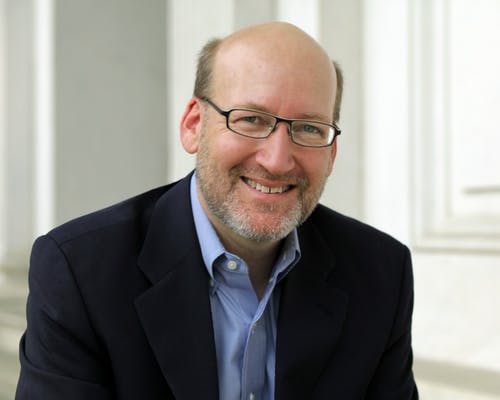 |
|
Andrew Kleine Andrew is a nationally recognized leader in budgeting for outcomes, performance management, long-term financial planning, and business process improvement. He is the author of City on the Line: How Baltimore Transformed Its Budget to Beat the Great Recession and Deliver Outcomes (Rowman & Littlefield, 2018). Andrew’s 25-year career has included leadership roles in both federal and local government, including as Chief Administrative Officer for Montgomery County, Maryland; Budget Director for the City of Baltimore; and CFO for AmeriCorps. For his leadership in guiding Baltimore through the Great Recession, Andrew received the 2016 National Public Service Award from the American Society for Public Administration and the National Academy of Public Administration. Andrew lives in Silver Spring, Maryland To learn more about Andrew, click here. |
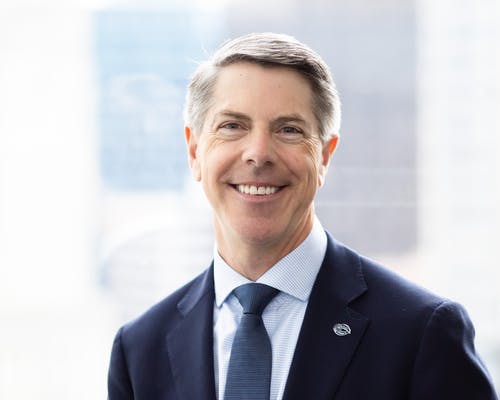 |
|
Chris Morrill Chris also served as Senior Municipal Finance Advisor to the South African National Treasury under a United States Agency for International Development project. In this position, he assisted the South African government with developing local government finance legislation, municipal budget reforms, and capacity building programs. He was in the first group of U.S. Peace Corps volunteers in the former Soviet Union, where he advised the City of L’viv, Ukraine on finance and management issues. Morrill co-authored The Savannah Story: The Road to Equity and Sustainable Community Development in Economic Development in American Cities: the Pursuit of an Equity Agenda. He completed a three-year fellowship in the Kellogg National Leadership Program, exploring conflict resolution and community building in Peru, China, Northern Ireland, and South Africa. Chris is a recipient of the Southern Christian Leadership Council (Roanoke Chapter) Martin Luther King, Jr. Drum Major for Justice Award. He is an ICMA Credentialed Manager, a fellow of the National Academy of Public Administration, and a leadership fellow of the National Association of Corporate Directors. He holds a Bachelor of Arts degree from the College of the Holy Cross and a Masters of Public Administration degree from the University of North Carolina at Chapel Hill. To learn more about Chris, click here. |
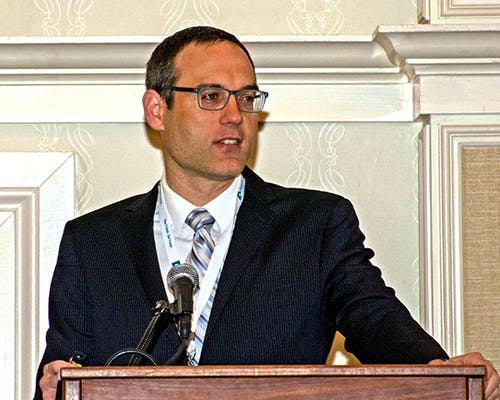 |
|
Shayne Kavanagh Shayne's financial planning experience also drives his research at GFOA. He is the author of a number of influential publications on financial planning, including:
Prior to joining GFOA, Shayne was the Assistant Village Manager for the Village of Palos Park, Illinois, where he was responsible for managing all aspects of financial management operations, including budgeting, utility billing, payroll, and accounting. He received his MPA degree from Northern Illinois University. To learn more about Shayne, click here. |
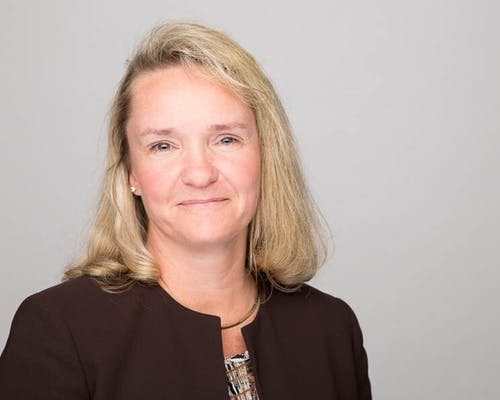 |
|
Lisa Parker, CPA, CGMA Lisa is a certified public accountant and a chartered global management accountant. She also is a member of the Association of Governmental Accountants, the American Institute of Certified Public Accountants, and the Maine Society of Certified Public Accountants, where she served as president. Previously, Lisa was president of the Maine Governmental Finance Officers Association, an executive board member of the New England Governmental Finance Officers Association, and a member of a national GFOA standing committee. Lisa attended Boston College and the University of Southern Maine graduating with magna cum laude honors and a bachelor’s degree in accounting. To learn more about Lisa, click here. |
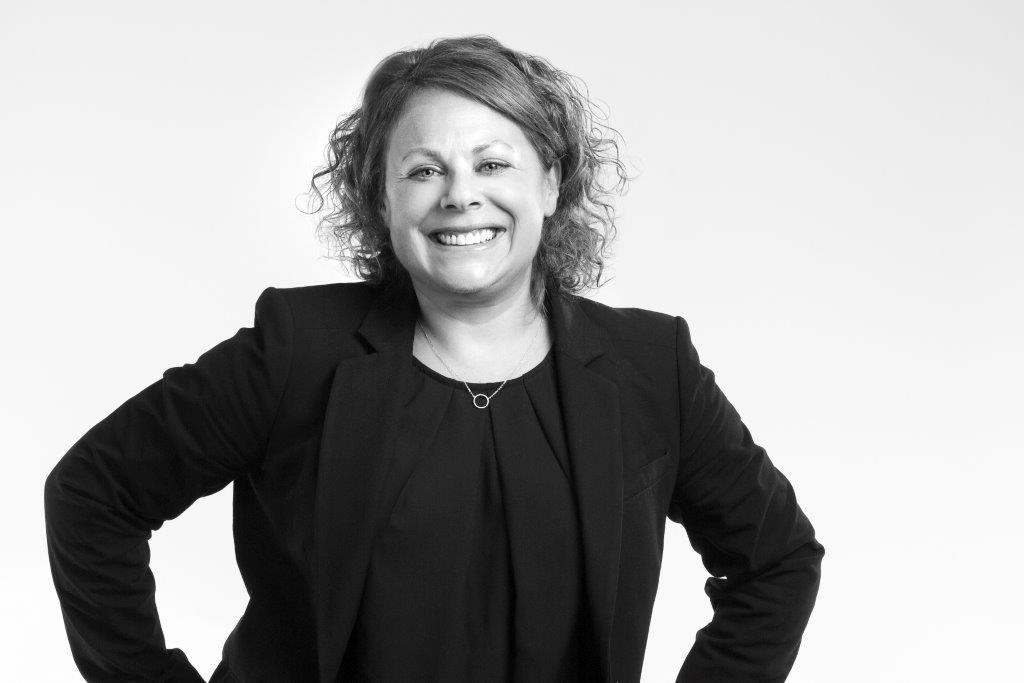 |
|
Nora Wittsruck Previous work history includes Moody’s Investors Service as an Assistant Vice President/Analyst covering local government credits in the West, Midwest and Southwest states. Additionally, Nora spent a short time at FirstSouthwest Company (a division of Hilltop Securities) managing the Continuing Disclosure department. Nora received her Master’s in Public Administration from the University of North Texas in Denton, Texas and her Bachelor of Arts in Political Science from Truman State University in Kirksville, Missouri. |
|
Regina Ryan, Esq. Ms. Ryan practiced law at Louison, Costello, Condon & Pfaff for 26 years specializing in employment litigation. In addition to her litigation experience, Ms. Ryan completed multiple MCAD certified training courses for conducting investigations and trainings related to discrimination and/or harassment in the workplace. She also holds the ATIXA Civil Rights Investigator Level Two Certification for Title IX investigations. Ms. Ryan has been a featured speaker at many conferences focusing on topics including sexual harassment and discrimination in the workplace and Title IX investigations. |
| Alexandria Zhang |
New to virtual events?
We're here to help! We have put together tips and tricks, a how-to guide, and a cheat sheet to make your experience as seamless as possible. Most sessions will be held via Zoom, while the Cybersecurity session will be held via WebEx. Please note most resources are specific to Zoom, but additional details on using WebEx will be posted here soon. Please review the information below and contact us if we can be of any assistance!
Prepare Before the Event
Check Your Internet Connection
To get the most out of any virtual event, it is important to use reliable internet. If possible, ask others in your home to stay off of the internet when you are in a session to minimize the devices connected to your network. If your wireless internet frequently lags, kicks you off, or is generally unreliable, try to use a wired connection right from your computer into your router, and keep your camera off as much as possible. You could also see if there is somewhere else you can go for internet access, such as the home of a family member or friend, a library, or a local café (if safe, and possible). Some libraries are offering free outdoor wi-fi, allowing you to connect from a nearby parking lot or outdoor space.
Unsure about your internet speed and reliability? Do a quick test of your internet speed on Google! This test will let you know your internet speed and how well it can handle multiple devices connected at the same time, video conferencing, and more.
Download Zoom and Create an Account
Sessions will be held live on Zoom, a web conferencing platform that you can download and use for free. While you can join sessions from your browser without downloading Zoom, for the best user experience we do recommend downloading Zoom and creating an account when possible. To download Zoom, visit their website and click the "Download" button under Zoom Client for Meetings. We recommend downloading Zoom onto a device with a larger screen, such as a laptop or desktop computer, instead of using your phone or tablet. In addition to downloading Zoom, you should create a Zoom account if you do not yet have one. You can create an account by downloading Zoom, opening the Zoom app, and clicking the "Sign up for Free" button on the bottom right. You can also create an account by visiting their sign-up page here.
Choose Your Device Carefully
If you have multiple devices, we recommend downloading Zoom onto the one with the largest screen, such as a laptop or desktop computer, so that you can easily see what is going on. When possible, we don't recommend using your phone as it will be difficult to see what is happening on such a small screen, plus phone calls, emails, and text messages could be distracting. The features and functionalities of the mobile version of Zoom are also slightly different, so please note that our guide and cheat sheet are not fully applicable to the mobile version.
Practice with Zoom
If you are new to Zoom, we recommend taking advantage of some of the many resources available to familiarize yourself with how to use it! We have created a detailed Zoom how-to guide, as well as a Zoom cheat sheet for your reference. You can also practice on your own by joining a test Zoom meeting here, or checking out some of Zoom's beginner tutorials here. If you have any questions or need a little more support, please don't hesitate to contact us - we're more than happy to help you get squared away (registration@umass.edu)!
Create a Comfortable Space
Find an area of your home or office where you will be comfortable, and ideally one that is private to minimize distractions. Arrange a comfortable chair in front of your screen. Set your screen up on a table, stand, or desk. Have everything you need, like a drink, snacks, and/or notepad and writing utensil, within reach. If you decide to have your camera on, consider the camera angle and the background your colleagues and fellow attendees will see, and perhaps rearrange or spruce up your space a bit. During the session, remove distractions and background noises by closing the doors and windows to your space, silencing your phone, and asking your family, housemates, and/or co-workers to be mindful of when you will be attending sessions.
During the Event
Get Ready for Your Session
One of the best ways to combat "Zoom fatigue" is to prepare yourself and your space in advance, and to get mentally and physically ready day-of. Consider stretching or going for a walk before sessions start. Brew a fresh cup of coffee or tea, fill up a water bottle, grab a notepad and pen, and then give yourself at least 15 minutes to get your device up and running. Setup your space in the days leading up to the meeting (see the "Create a Comfortable Space" section above) and have anything that you might need during the session close by - you don't want to miss anything because you have to go grab some supplies or a drink! If you decide to leave your camera on, keep in mind the presenter and other meeting attendees will be able to see you, so make sure you and your background are camera ready. Lastly, silence your phone, close out of your email, minimize any other distractions, and enjoy your session!
The conference is full of great sessions, but nonetheless it can be helpful to rest, recharge, and enjoy some screen-free time when the schedule allows. Review the schedule to get a sense of when you will have some breaks or blocks of down time, and take advantage of these! When you have a break, try to get up and stretch. For longer breaks, consider taking a short walk to get some fresh air and recharge. These are also great chances to replenish any supplies, drinks, or snacks in preparation for the next session!
Have questions or need assistance? We're happy to help! For the most immediate assistance, please email us at registration@umass.edu!
For Membership Related Questions
Please visit the New England States Government Finance Officers Association website.
For Registration and Payment Related Questions
Please contact the UMass Conference Services Registration Team at registration@umass.edu or 413-577-8102.
